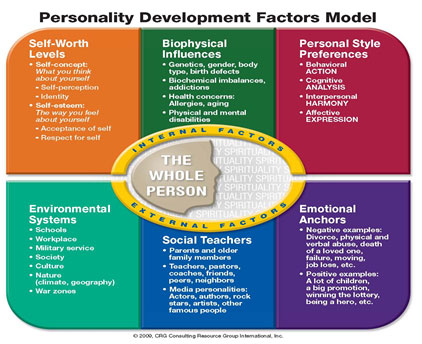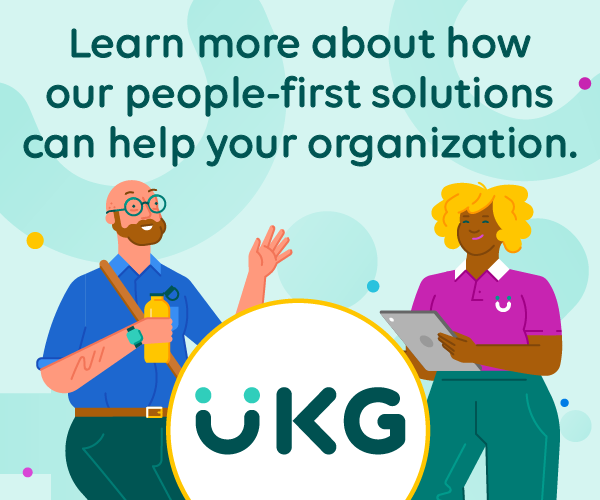Emotionally Anchoring our Professional Development (Part Seven)
By Ken Keis
This is the final installment of a seven-part series. Start with Part One.
Emotional Anchors
What are emotional anchors and how do they impact us? This category with the Personality Development Factors Model consists of any experience that has in some way caused us to feel pain or traumatized us or created a strong reaction, either emotional or physical. After a major event shocks or affects our systems, we are never the same again. The memory of it penetrates beyond our reasoning into our subconscious and leaves us “different” from who we were before the event happened.
Growing up on the dairy farm, my siblings and I were always conscious of safety around farm equipment. That was never clearer to me than through the following event.
My father was harvesting silage—cutting grass for winter storage. After school, I hitched a ride in one of the silage wagons. They had chains and sharp spikes to unload the silage at the storage location. The driver pulled the silage wagon up to a powerful blower that threw silage six storeys high.
But in the process, he had forgotten I was in the silage wagon. He had already turned on the belt that fed the blower and was about to turn on the silage wagon. I knew I had to get out of the wagon or I would be injured or killed. I jumped out of the wagon and slipped on to the conveyer belt that fed into the blower. I was 2 seconds from death when the hired hand pulled me off the belt.
Needless to say, I never rode inside another silage wagon. That experience has made me extremely safety conscious and cautious around any type of equipment. Just ask my kids. My three favorite words are safety, safety, and safety. That is called an Emotional Anchor.
Emotional experiences need not start out negatively, but they can end up that way. For example, a woman who gives birth to triplets may be overjoyed at first, but, due to the extra amount of work involved in taking care of three infants, she might end up feeling quite resentful because she has no time to herself. While she loves each one of the children, the overall experience has become an Emotional Anchor.
Notice I said might end up feeling resentful. The same experience might not have the same effect on another individual. For instance, one person who has been in a very serious auto accident may be emotionally scarred for life, whereas another person may quickly get over the accident and still love to drive.
A few years ago, a firefighter saved a 5-year-old who had fallen into an old abandoned well. That seemingly simple act of courage turned into a disaster for the firefighter. As media outlets from around the world called to interview him, he began to get attached to the attention.
Before long, his attitude (ego) toward his other colleagues became too hard to handle and he was fired from his position. Even his family abandoned him, leaving him with nothing. A seemingly positive event turned into a negative Emotional Anchor.
Some people go through life without having many of those kinds of experiences and others have more than their fair share. We all have personal examples. Even if two people have had very similar experiences, that doesn’t mean they both were traumatized. Different things affect different people in different ways.
The Emotional Anchor experience category is the “window” through which counselors and therapists often examine personal behavior. If you have unfinished business from your past—fear or bitterness, for instance—perhaps talking to someone trained in helping people with those types of experiences would be beneficial for you.
The main point is that after we have a traumatic experience, our personalities and behavior change in some way; we do not remain the same.
Are you aware of how you have been affected by your experiences?
Examples of Emotional Anchors
Negative possibilities: Divorce, physical abuse, death of a loved one, failure, moving, job loss, natural catastrophes
Positive possibilities: A lot of children, a promotion where the new job overwhelms you, winning the lottery and being unable to manage your new-found wealth, being a hero and not able to handle the media attention
Each individual will respond uniquely to similar events.
Some will be traumatized; others will not. Don’t judge an event’s impact on a person by the way those experiences might affect you.
Spirituality
In the Personality Development Factors Model, you will notice the side profile of a person. Under the profile is the word Spirituality. We added Spirituality to our model because we recognize that a person’s beliefs and spiritual perspective highly influence behavior, choices, values, and life satisfaction.
In the end, each person will make his or her own choice about spirituality. People should be respected in their choice.
Writing about spirituality can be a sensitive issue for some people, but that doesn’t make the topic any less important. The oppression we know as political correctness has hindered full engagement of this subject. By not mentioning it, we deny each other access to answers that will bring resolution to our true purpose and meaning in life—and the underpinning to everything we are and do. There is no way to avoid it.
In our Personality Development Factors Model, we are not talking about the humanistic, watered-down version of spirituality that typically refers to core values and unspecific beliefs. We are referring to the foundational beliefs on which our lives exist and function. That is the deepest level of awareness we can seek or achieve.
Here is the reality. Confirming and determining your true calling and purpose in your life includes going on a personal quest to find answers about your spirituality!
- Are human beings spiritual? How can we know?
- If we are spiritual, what does that mean? What is the truth on the subject?
- How can we tell truth from falsehood?
- Is there a God (Capital G)? Who or what is God?
Those questions and the answers you find will help expand, confirm, or challenge your thinking about your spirituality. The truth will set you free—only if you seek to know it. Approaching the subject with an investigative, inquisitive mindset is important to the process. Of course in the end, you will make your own personal choice.
Our lives operate under natural laws and truths. Regardless of our opinions about those laws, the laws do not change. One example is gravity. Just because we don’t understand it or accept it doesn’t mean gravity does not exist. When people believed the world was flat, their collective opinion did not make it so.
The principle of natural laws and truth applies equally to spirituality. Personal relativism (deciding what spiritual truth or law is true) applies no more to spirituality than it does to gravity. Our focus should be on discovering spiritual truth, not in creating it—because no one can create spiritual truth.
How can you understand self and others unless you have hope? Not easily!
Not long ago, a study was released about the factors that most influenced the happiness (lack of worry) and fulfillment of 8-to-12 year olds. Contrary to the researchers’ premise, “happiness and fulfillment were not always present in a two-parent family, with higher income levels, and physical health. The happiest kids had faith in God. With a capital G.
Children with faith were the most content and well adjusted. Their faith was even more important than the number of parents raising them. Their spirituality provided hope, grounding, and well-being beyond their circumstances.
All individuals should be respected as they go through their spiritual search process. Each journey is intensely personal, even though the destination is the same—to arrive at a place of spiritual truth.
A few years ago, I had the pleasure of listening to a brilliant mathematician and scientist who took the time to calculate the implications of the Theory of Evolution. His presentation documented the fact that it’s not mathematically feasible to have all origins of life come from a single point, as is suggested by some.
From his research, he found that Evolution required genetic mutations and progress of such magnitude, it is simply not possible. He pointed out that current science reveals most species that mutate die out. (Mutations are required for the Theory of Evolution to be fulfilled.)
Everyone has a position on the subject. We include it as part of our development model because your beliefs significantly influence your choices and your success in life.
One Final Caution
No single Personality Development factor is more important than another in determining personality and behavior. In real life, any category can override or dominate any or all the other categories at any given time or in any given situation. When one category dominates the others, the others simply don’t disappear or go away. They are still there and can be used to assist a person to increase his or her current level of self-management.
If you are going to contribute at the highest level, you should simultaneously activate awareness of all factors so you can embrace a complete and holistic path of development. This applies to any HR or learning strategy that an organization might implement.
Ken Keis is considered a global authority on the way assessment strategies increase and multiply your success rate. In 22 years, he has conducted more than 2000 presentations and 10,000 hours of consulting and coaching. Author of Why Aren’t You More Like Me? Discover the Secrets to Understanding Yourself and Others, Ken can be contacted at 604 852-0566, info@crgleader.com, or through www.whyarentyoumorelikeme.com.








